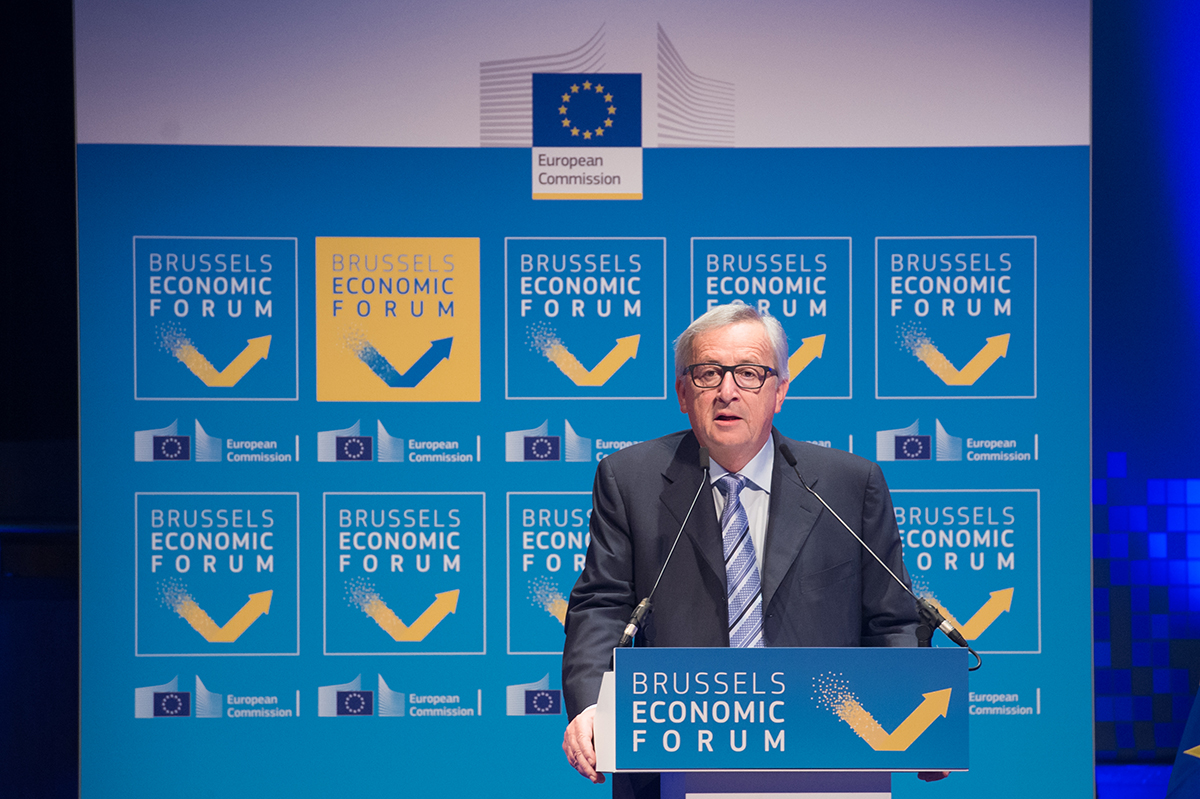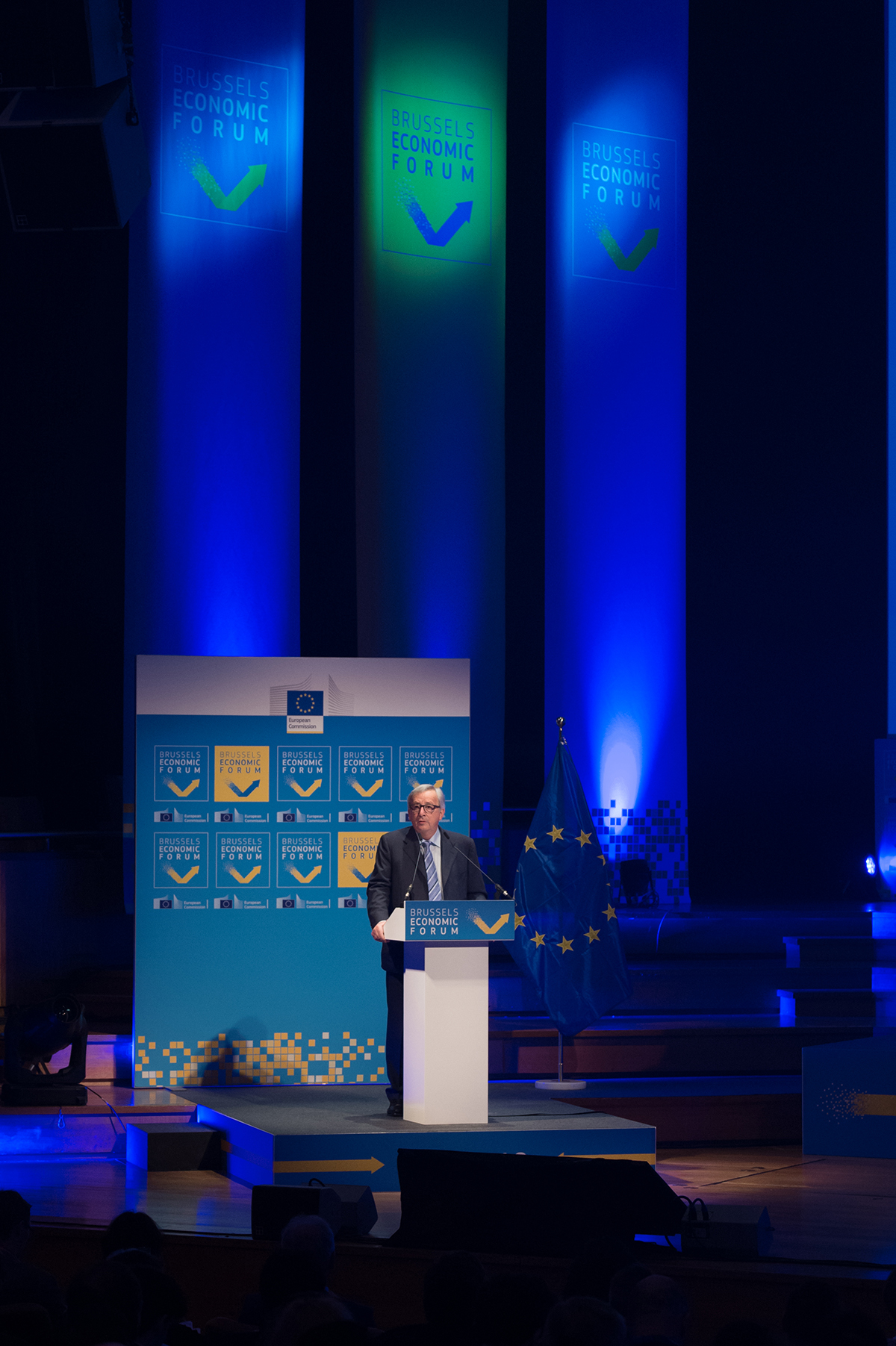Economic and Monetary Union must provide protection, prosperity and progress, says Juncker
The European Union must tackle the root causes of despair in society and complete its Economic and Monetary Union, European Commission President Jean-Claude Juncker, said at the Brussels Economic Forum. Delivering the Forum’s annual Tommaso Padoa-Schioppa address, Juncker identified the two issues as major challenges but said that the EU is already working to address both. He also mentioned the two recent Commission's budget proposals to strengthen the EMU (a Reform Support Programme and an Investment Stabilisation Function) and said the Commission is planning to expand the successful Investment Plan for Europe and mobilise even more private investments: this announcement was followed by the official InvestEU proposal on 6 June. The three proposals will be further developed in the next DG ECFIN e-newsletter on Monday 11 June.

“I believe in what the economy can do for people, rather than in what people can do for the economy,” he said, advocating strong support for a social market economy.
Juncker said that the EU’s commitment to a social dimension, far from being mere words, was now a key ingredient in the way it monitors economic progress. These priorities are included in the annual recommendations the Commission makes to EU governments. It is also underpinned by the European Pillar of Social Rights, which EU leaders and institutions adopted last November.
Mr Juncker set out what the EU has already achieved on the road towards EMU completion. It has strengthened euro area governance, tackled weaknesses in the banking sector, made progress on a common deposit insurance scheme and a Capital Markets Union and tabled proposals to use the EU budget to support economic reform.
These individual initiatives should not detract from the ultimate goal. “My message to you is that we must never lose sight of what Economic and Monetary Union stands for, and how it must continue to offer protection, prosperity and progress to all Europeans,” he said.
The Commission President pointed out that the single currency is already a success story. Some 340 million Europeans use the euro every day and 60 countries link their currencies to it in one way or another.
He highlighted the economic progress being made. Employment is at record levels with 237 million people in work, investment is picking up, public finances are becoming healthier and national debt is decreasing.
As a new coalition government took up office in Italy, Mr Juncker paid tribute to the country’s “place at the heart of Europe and of the euro” and the contribution it had made to build a united Europe.
He paid generous tribute to Tommaso Padoa-Schioppa, the former Commission Director-General and Italian Finance Minister who is considered one of the founding fathers of the euro, and said it was fitting that his successor in charge of economic affairs in the Commission today was also Italian, Marco Buti. “Italy – yesterday as today – deserves respect and trust,” he said.

